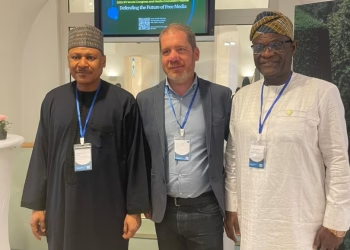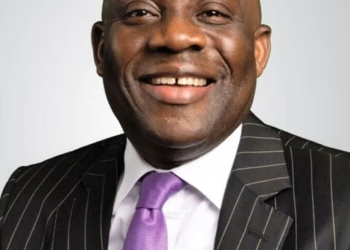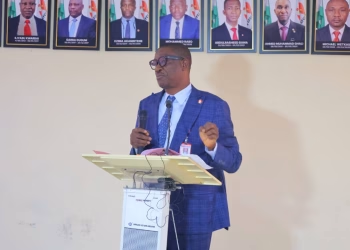
In a bid to spotlight public perception of the judiciary’s role, challenges, and reform demands in Nigeria, the Human and Environmental Development Agenda (HEDA Resource Centre) on Tuesday, launched a new edition of the Leadership Approval Rating (LAR) report, titled “Voices for Justice: A Civic Lens on Nigeria’s Judicial System – Documenting Public Experiences, Opinions & Reform Demands.”
This fifth volume of the LAR initiative provided critical insights into the Nigerian judiciary as a cornerstone of democratic governance and the guardian of citizens’ rights and liberties. The report also explored how the public perceives the judiciary’s performance, particularly in light of concerns about corruption, accountability, and access to justice.
HEDA’s Chairman, Olanrewaju Suraju, explained that the civil society group noted that the report offers a deep and timely analysis of the judiciary’s strengths and gaps. According to Suraju, while the judiciary remains the final arbiter of justice, increasing concerns about its integrity have sparked vital public discourse.
“This publication is a call to action for collective efforts to address issues within the judiciary and restorola1e public confidence. It represents our commitment to amplifying the voices of Nigerians and driving meaningful reforms,” Suraju stated.
Notably, HEDA’s Leadership Approval Rating (LAR) initiative empowers Nigerians to evaluate government policies and institutional performance. By focusing on key sectors such as health, education, and anti-corruption efforts. The LAR promotes transparency, accountability, and citizen participation in governance.
Presented by the Executive Secretary, Sulaimon Arigbabu, the report is based on a nationwide survey of 1,357 respondents across Nigeria’s 36 states and the Federal Capital Territory.
According to him, the findings paint a stark picture of how citizens experience and perceive the justice system.
The report also revealed troubling trends in judicial integrity. Nearly half (49 per cent) of court users admitted to paying or “sorting” court officials, while 65.4 per cent described judicial corruption as high or extremely high.
Only 42.3 per cent of respondents believed court decisions were based on merit, citing persistent delays and perceived bias. Trust in legal professionals was similarly low, with 64 per cent saying lawyers contribute to judicial corruption and just 29 per cent viewing judges as impartial.
Political and high-profile cases were also flagged as areas of concern. About 63.4 per cent of respondents believed such cases expose judges to corruption, while 48.9 per cent said these cases were prioritised at the expense of ordinary matters—contributing to prolonged delays in accessing justice.
Although 59 per cent agreed that financial autonomy had moderately improved judicial independence, only 17 per cent expressed trust in the National Judicial Council (NJC) to discipline erring judges.
While the financial autonomy of the judiciary has improved considerably, the independence has not been matched with transparency and accountability.
To address these concerns, respondents called for far-reaching reforms. These include full judicial autonomy, improved pay and security for judges, stronger anti-corruption enforcement, and greater transparency through measures like livestreamed court proceedings and the use of body-worn cameras.
The report also recommended legal literacy campaigns to educate the public about the judicial process and their rights.
Speaking with journalists at the report’s launch, HEDA’s Senior Programme Consultant, Sina Odugbemi, highlighted the role of civic actors in driving reform.
“We all must stand up. Corruption is everywhere, and we must expose it,” he said. “Even the media can do more. We need investigative journalism that goes beyond surface-level reporting.”












